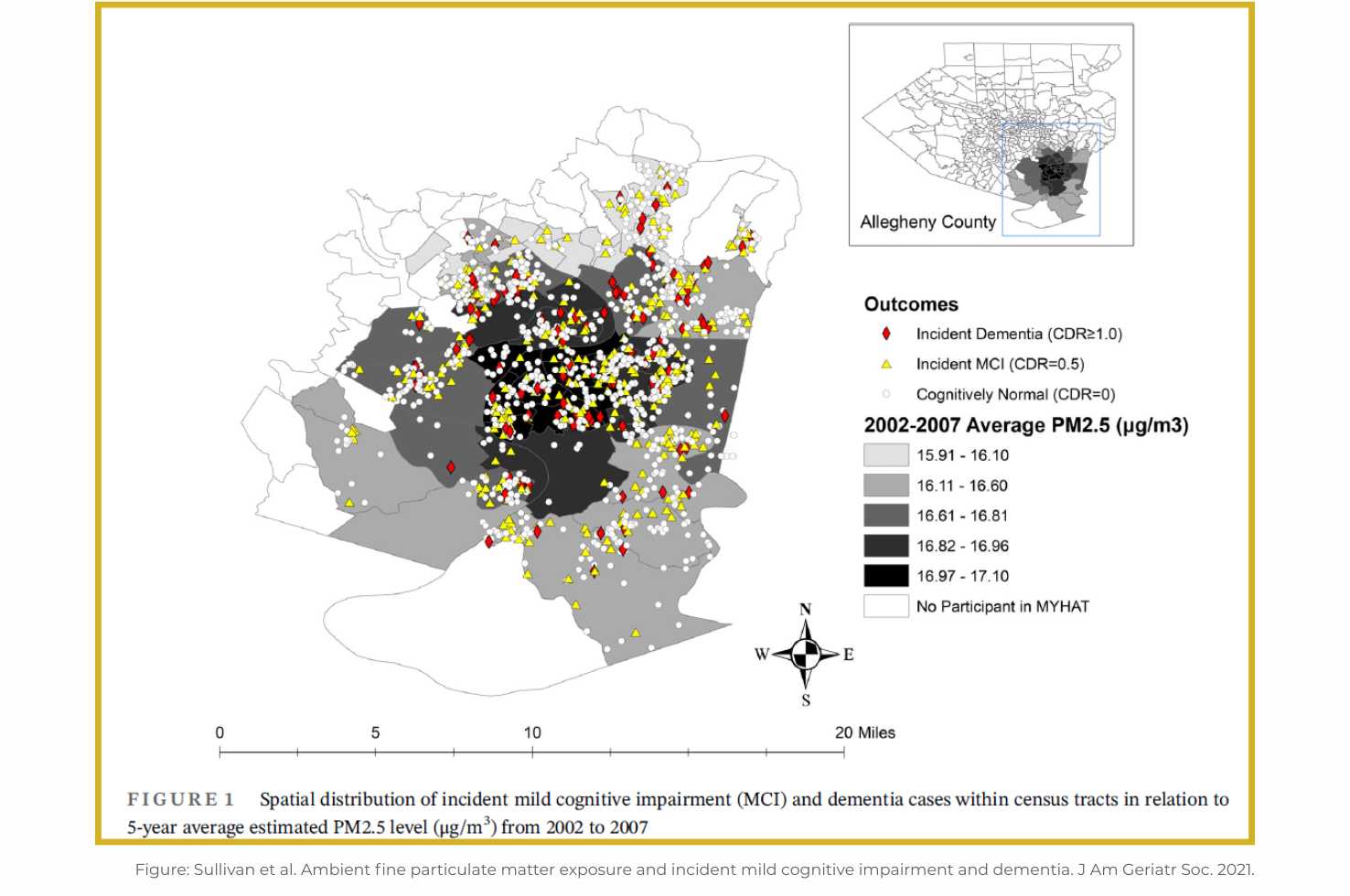Journal of the American Geriatrics Society: Social Determinants of Health and Mild Cognitive Impairment in a Representative Community Sample

Social determinants of health are non-medical factors of daily life that influence health outcomes. A review of factors influencing cognitive impairment in older adults presented a range of community-level structural and social determinants of health, distinguished from individual risk and protective factors.
Investigators led by Mary Ganguli, MD, MPH (Professor of Psychiatry, Epidemiology, and Neurology), analyzed data from Monongahela-Youghiogheny Healthy Aging Team (MYHAT), a longitudinal study on aging and cognition that involved participants ages 65 years or older from an under-resourced, post-industrial area in southwestern Pennsylvania. The work was funded by a research grant from the National Institute on Aging.
The investigators examined associations of mild cognitive impairment with potential social determinants of health including neighborhood disadvantage (related to income, education, employment, and housing quality), air pollution with fine particulate matter, greenspace (land with natural vegetation), relative walkability, healthcare availability, and homicide rate. They found that several community-wide social/environmental factors were associated with mild cognitive impairment: higher neighborhood disadvantage and homicide rate, along with limited greenspace and lower education level. Exposure to air pollution, about twice the national average in this area, affected Black study participants to a greater degree than White participants.
“Both as a clinician and as a researcher, I find it useful to realize that older people’s social and environmental factors can influence their risk of cognitive impairment, over and above their individual risk factors like smoking and blood pressure,” said Dr. Ganguli, corresponding author of the study published in the Journal of the American Geriatrics Society.
“The study's emphasis on structural and social determinants of health challenges the paradigm that cognitive health can be preserved solely through individual-level interventions, such as lifestyle modifications or obtaining regular clinical care. While encouraging older adults to adopt brain-healthy behaviors remains crucial, these findings emphasize addressing distal upstream factors, such as urban planning, environmental regulations, and community safety.” (Ganesh M. Babulal, PhD, OTD, MSCI, MOT, Washington University in St. Louis) Click here to read a related editorial by Ganesh M. Babulal.
Social determinants of health and mild cognitive impairment in a diverse community sample
Ganguli M, Jacobsen E, Song R, Wood I, Kinnee EJ, Hughes TF, Snitz BE, Chang C-CH
Journal of the American Geriatrics Society. Volume73, Issue2. February 2025. Pages 367-378
